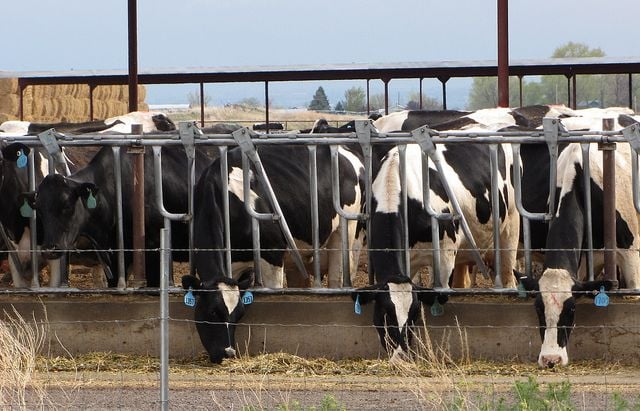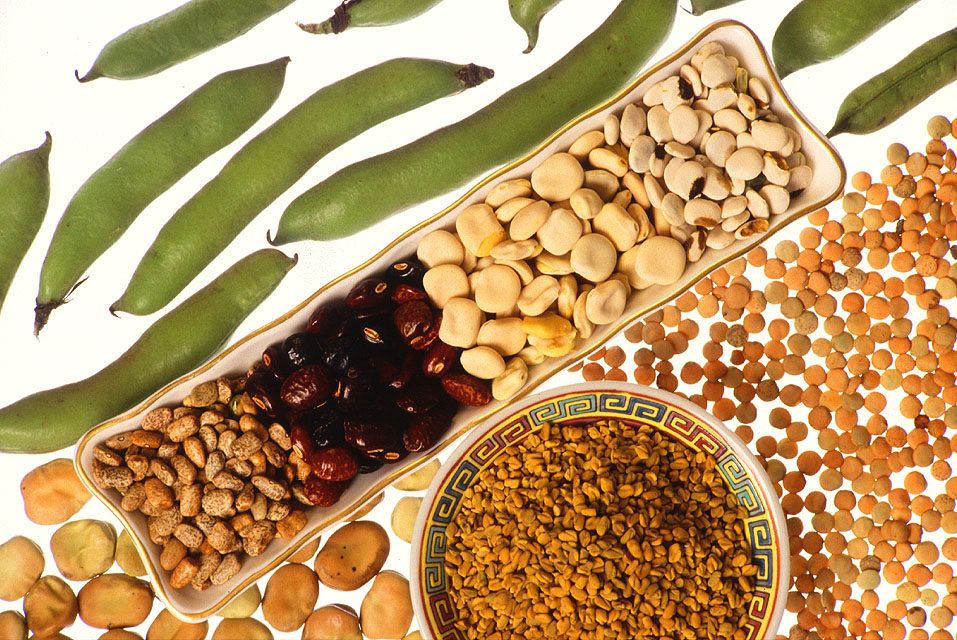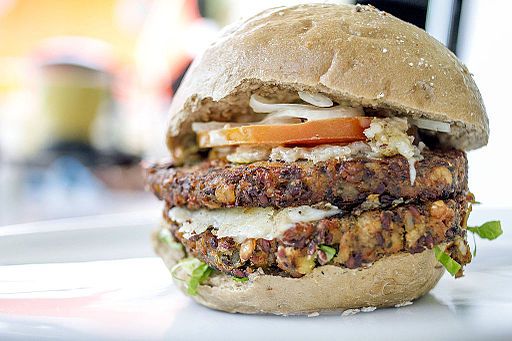The largest privately held corporation in the United States is selling off its last cattle feed yards in the U.S. to invest in other types of protein, including plant-based foods.
“Selling our two remaining feed yards aligns with our protein growth focus by allowing us to redeploy working capital away from cattle feeding operations to other investments,” said John Keating, president of Cargill’s Wichita-based protein business operations and supply chain in a company press release.

A cattle feed yard in Idaho. Picture by Greg Goebel via Flickr, CC by 2.0
Cargill explores emerging protein options
The deal, which sold their last feed yards in Colorado and Kansas to Green Plains Cattle Company for $36.7 million, will allow Cargill to divert funds away from cattle raising and explore new protein trends. Some of these emerging proteins come from unlikely sources. While the company is not abandoning their stake in the beef and poultry market, they will look into plant-based protein, insects, and fish.
“We are committed to being the leading protein provider that nourishes people, animals and the planet in a safe, responsible and sustainable way while exceeding the expectations of our customers,” said Keating. “We have great positive growth momentum and are confident it will continue to accelerate as we continue to help our customers’ and suppliers’ businesses, communities and colleagues thrive.”

Picture by Keith Weller, Agricultural Research Service, USDA CC By 0, via Wikimedia Commons.
Consumers increasingly choose plant-based proteins
Cargill has a major stake in livestock, but they are well aware that younger generations are starting to think more consciously about their food choices. Today, information about the consequences of eating meat is widespread – there’s even an application that teaches children just how their eating habits affect the planet.
Livestock farming is harmful to the environment
Millennials are becoming more aware of how animal farming negatively impacts the environment.
Factory farming requires numerous resources. Raising one cow requires 660,430 gallons of water and large tracts of land. Not only do animals need land to live on, people must also set aside land to grow grains to feed farm animals. In fact, 70 percent of the grain in the U.S. is grown for livestock. All of this adds up, making livestock farming responsible for 14 percent of greenhouse gas emissions. Needless to say, factory farming has a negative impact on our climate, and ultimately, on humans as well. Eating less meat could make a real difference in protecting the environment.
Eating plant-based protein improves health and lowers the cost of health care
Not only is swapping meat for plants good for the environment, it is also better for you. It’s so much healthier that eating less meat could significantly reduce the cost of healthcare – if people ate a completely plant-based diet, we could save $30 trillion every year.

Picture of a vegan burger by Shpernik088 (Own work) CC BY-SA 4.0, via Wikimedia Commons.
Meatless meat makes plant-based protein an easier choice
Of course, there’s another, more palatable reason people are opting for plant-based meals – meatless meats are more complex in flavor and texture than ever before. Today, you can even buy a meatless burger that “bleeds.” This makes eating plant-based more accessible to some since many still feel like they are eating “meat.” Even people who aren’t vegan or vegetarian are taking part in this trend. In 2014, just 5 percent of people in the U.S. were vegan or vegetarian but nearly 40 percent of the population eats meatless meals.
Cargill sets precedent as it starts to embrace new protein sources
Cargill can certainly tap into some of this energy as the company searches for new protein sources and investment opportunities. However, it is still relying heavily on animal-based protein for the foreseeable future. Green Plains will continue to supply Cargill with beef produced on their former feed lots, which can hold up to 155,000 cattle. Still, considering Cargill’s role as one of the world’s leading beef suppliers, transitioning to new protein sources could set an important precedent.






